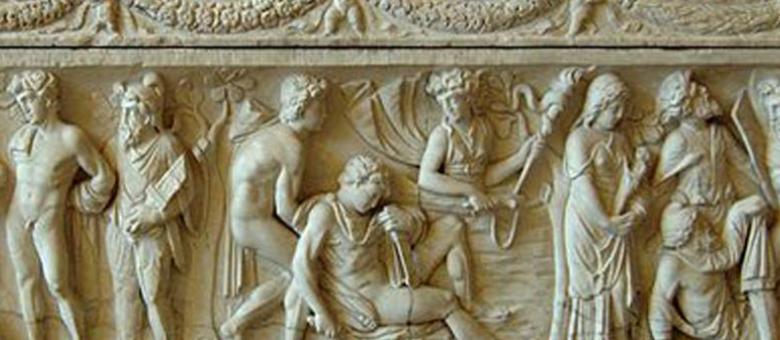
News

ICOM Czech: The measures preventing illicit cultural heritage export from Iraq and Syria
Summary and recommendations for future activities of institutions in the Czech Republic contributing to the illicit cultural heritage export from Iraq and Syria prevention
Czech Commission for UNESCO, Czech Committee ICOM and Czech Commission of Blue Shield organized a seminar entitled “The measures preventing illicit cultural heritage export from Iraq and Syria” on the 23rd September 2015 at the Ministry of Foreign Affairs of the Czech Republic. Organizers invited representatives of the Ministry of Foreign Affairs (MFA), Ministry of Culture, Directorate General of Customs and the Police Headquarters as well as the academicians (from the UNESCO department for Museology and World Heritage and Unit of Prehistoric Archeology of Middle East at Masaryk University in Brno, Department of Archeology at University of West Bohemia in Plzen and Department of Histrory at Palacky University in Olomouc) and independent experts, who presented the issue and the recent activities from their perspectives.
Karel Komárek, the Secretary General of the Czech Commission for UNESCO, presented the adopted resolutions of the UN Security Council, in particular resolution 2199/2015 banning trade in Iraqi and Syrian cultural property illegally exported from Iraq after 6 August 1990 and from Syria after 15 March 2011. He recalled as well the resolution of the UN General Assembly of May 2015 (A/RES/69/281 Saving cultural heritage of Iraq), that unambiguously condemns the destruction of Iraq's cultural heritage and its illegal exports, calls for holding perpetrators accountable and encourages states to document the cultural heritage endangered by armed conflicts. UNESCO itself has a limited mandate, there is no control mechanism of the resolution compliance. However, UNESCO is making efforts to strengthen the capacities of Member States in terms of prevention, data collection and creation of protected cultural areas and the subsequent reconstructions.
Pavel Caban (MFA) spoke about the history of the Hague Convention for the Protection of Cultural Property in the Event of Armed Conflict of 1954, its Second Protocol of 1999 and current states´ positions. Lukáš Gjurič (MFA) shared information about the latest political situation in the region and the difficult solution of the war conflict. Magda Němcová, Ministry of Culture, added the European dimension to the scope of the problem and described the ongoing discussions with the European Commission.
The President of the Czech Commission ICOM Martina Lehmannová and a member of the Board Pavel Jirásek recalled satisfying experience with type objects databases that are being continuously revised. The objects from Mesopotamia or pre-Columbian America have been found in Western Europe thanks to the so called Red List. This year a revised Red List of Iraqi heritage was published. Equally good initiative is the so called Object ID and 100 Missing objects, which contain basic information and pictures of the items. Customs officers, policemen, insurance companies and museums are the main users of the databases. The representative of the Directorate General of Customs subsequently confirmed the usefulness of these instruments. However , the databases are used in a limited way in the Czech Republic, so the representatives of the ICOM, Police and the Directorate General of Customs promised to raise awareness.
Sabina Malcová, an independent expert in the field of Islamic Art and Jana Součková, President of the Czech Committee of the Blue Shield, focused on a sample of Islamic movable cultural heritage. Karel Nováček from Palacky University in Olomouc introduced the project of mapping the destruction of immovable cultural heritage in Mosul, Iraq and the possibilities of its salvation. It is one of the most spectacular project with a significant international impact. Students Barbora Kubíková and Denis Štefanisko of Masaryk University in Brno spoke about the international archaeological networking as a tool to help endangered monuments.
All perceive this seminar as a first summary of activities in our country addressing the issue. Although it seems the Czech Republic is not concerned, the seminar showed that there is a number of activities monitoring endangerment and destruction of cultural heritage in the Middle East. The importance of further cooperation proves not only the undisputed success of activities such as unique Czech project mapping of destructed monuments of Mosul or implementation of Red List of ICOM, Object ID and the 100 Missing Objects, but as well the request made by the Police and the Customs officers to train their staff in this field. We agreed that further activities will be developed mainly among Czech authorities ICOM, UNESCO and the Czech police, as this cooperation may bring the most tangible impact. The outcome of the seminar showed that the Czech Republic can offer its expertise to the world and will do so in particular via UNESCO and ICOM.





